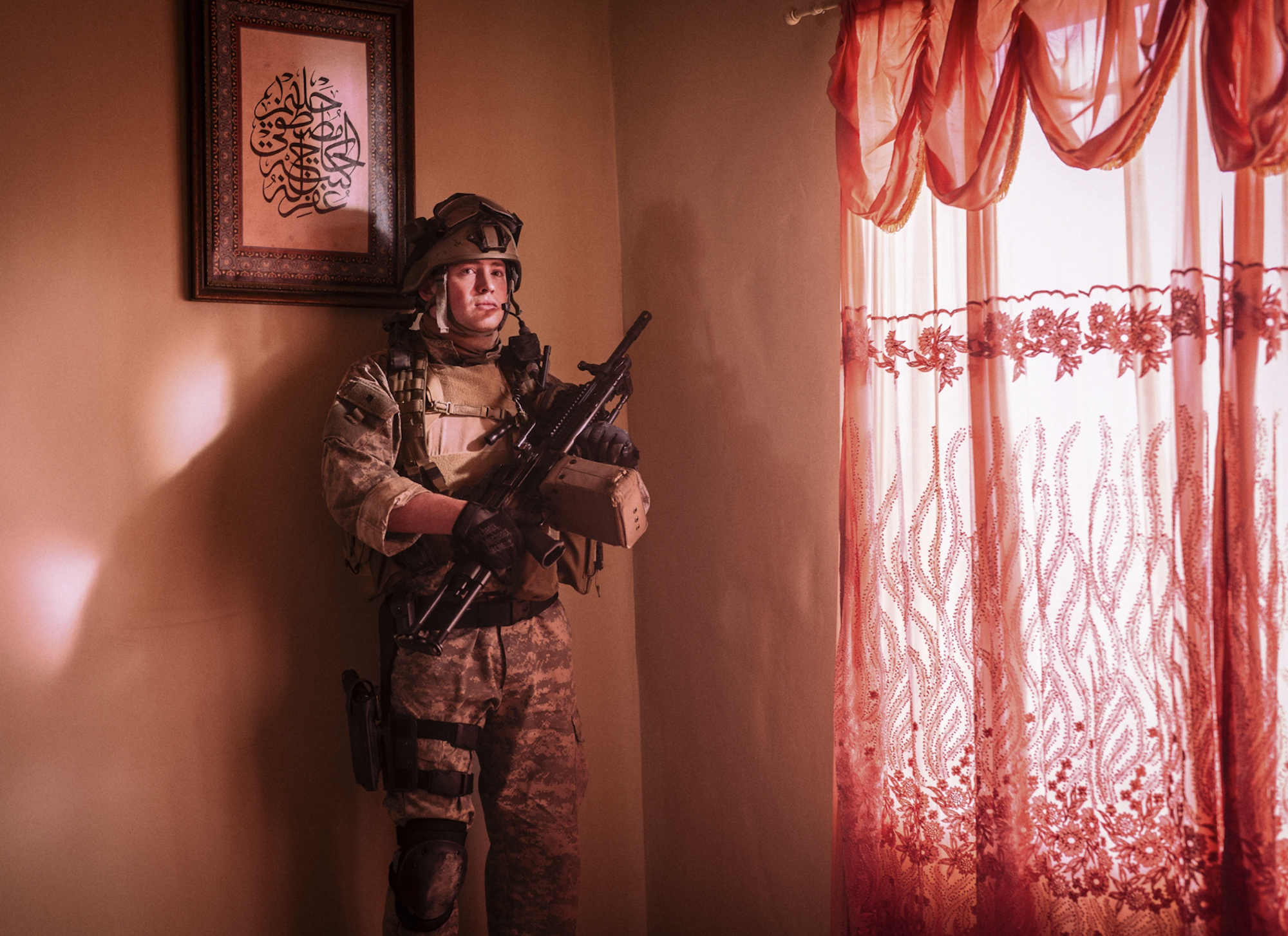Film Review: Warfare (2025)

If there’s one thing in this world that gets my anxiety levels into the red, it’s constant and cacophonous noise. I’m not talking about the thrum and occasional shriek of a slow moving freight train or screeching of vocals sung through a blown-out P.A. at an overloud punk show – I’m talking about the never-ceasing and discordant clatter that accompanies total, uncontrollable chaos.
When you add an anxiety disorder that was only diagnosed a few years ago together with my nearly ruined ears (thanks to my 30+ years of attending the above-mentioned punk shows, most of which without earplugs because I was an idiot), I become instantly agitated – often to the point where I feel the need to cover my ears, close my eyes, and head for the hills. It’s become a fight or flight response that’s hard to shake in the waking world, but here’s the weird part: I’ll be damned if I don’t enjoy the hell out of movies that mimic the same infuriating stimuli.
From a psychological standpoint, I imagine this is because I know that a movie can’t reach beyond the confines of its screen, and that when the credits roll, I get to go home with no questions asked. Regardless of whether a film sticks with me on an emotional level when it’s over, I know it’s over and that’s the end of it. Perhaps when viewing stressful movies, I’m subconsciously confronting my anxiety triggers and telling them that I’m in control – that they don’t get to decide what makes me want to duck and cover. Or maybe I’m just weird. Who knows?
In a long list of panic-inducing movies that I have thoroughly enjoyed, Ray Mendoza and Alex Garland’s Warfare sits high on the list.
Told in real time over 95 minutes, Warfare is as relentless as a film can be. Its visceral approach to battle stands as both a statement against its namesake and as an act of commendation for those who choose – for any number of reasons including economic, patriotic, or vitriolic – to willingly partake in the madness. But, contrary to what one might think, Warfare is not a political film. Mendoza and Garland never hold our hands and spin us around a dance of messaging from either side of the political spectrum.
What they’ve done instead, to the best of their ability and with as much accuracy as possible, is recreate a relatively short battle that took place in Iraq back in 2006. That’s all. They then leave it up to us to decipher what we think of it, leaving the gore, anxiety, PTSD, foul-ups, and stressed-out, heat of the moment decision making intact. Your reaction to what’s presented is left up to you, your personal beliefs and lived experiences, and perhaps your politics, but how you walk away from Warfare may be telling of your relationship with the aforementioned criteria.
For me, a staunch lifelong anti-war stalwart and one prone to attacks of anxiety, Warfare’s messaging is clear. But I can’t help but wonder what others out there – from all manner of conservatives, liberals, vets, and leftists, and from Boomers to Gen Z and beyond – might take home from this brutal and haunting display of our nation’s recent (and unfortunately, continued) history.

